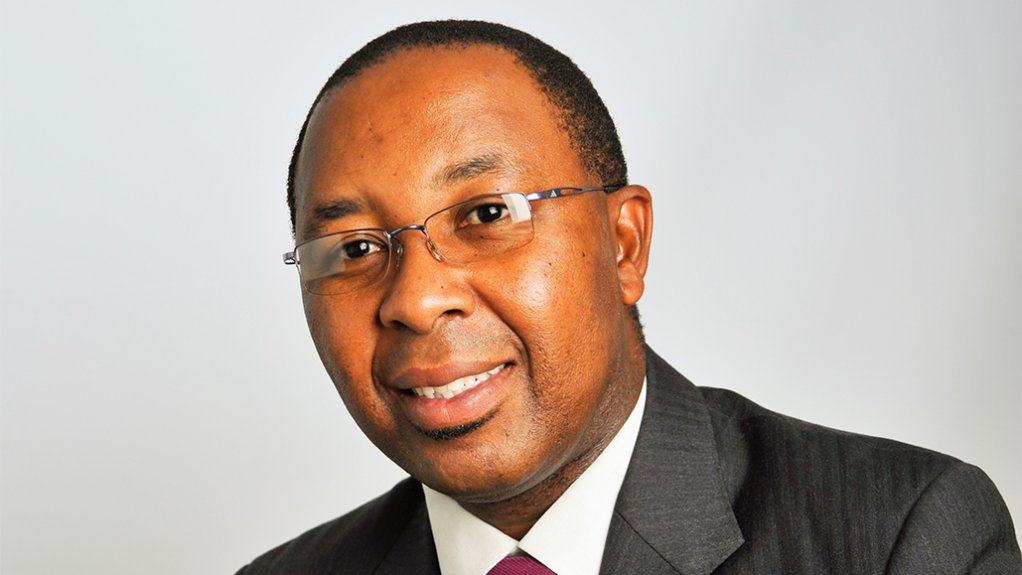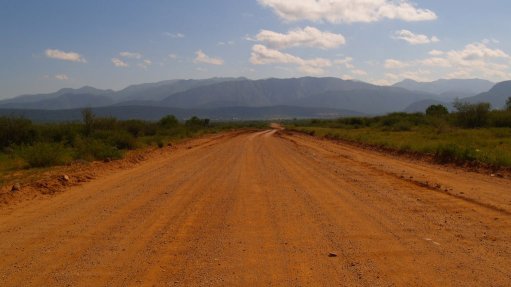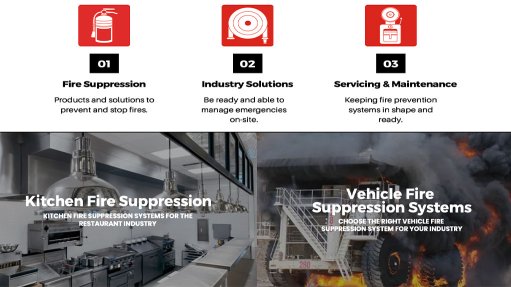Standard Bank halts new coal-power funding, but backs gas as ‘transition fuel’
The Standard Bank Group has become the latest South African bank to confirm that it will no longer finance new coal-fired power plants or support the expansion of existing coal-fired power plants as part of its newly unveiled commitment to achieve net-zero carbon emissions from its portfolio of financed emissions by 2050.
The group has also pledged, in a climate policy released by CEO Sim Tshabalala on March 16, to achieving net-zero carbon emissions from its own operations by 2040.
While there is no consistency among South African banks in the way climate policies are drafted, the release of a policy statement by Standard Bank means that only Absa is yet to publish a formal climate change statement, with Nedbank, First Rand and Investec all having adopted positions.
Corporate and Investment Banking CEO Kenny Fihla tells Engineering News that the bank’s halt on new coal investments extends to so-called clean-coal technology plants, which he describes as a “misnomer”.
The bank will, however, support any refurbishment of existing coal-fired power stations that has the specific purpose of improving efficiency and reducing carbon emissions using carbon capture, usage and storage. Such refurbishment should form part of a clearly defined decarbonisation plan, aligned to net zero by 2050.
The policy, Fihla highlights, also significantly narrows the bank’s financing focus for new coal mines, which will be funded only when there is an overall positive environmental impact.
Citing coal supply to Kusile as an example, he explains that the bank will still finance a new mine located next to an existing coal-fired power station if it can be proved that its development will reduce transport-related emissions. Finance could also be provided for mines that provide a superior quality of coal that could help reduce an existing power station’s emissions.
Overall, Standard Bank has committed to reducing its thermal coal exposures to 0.50% by 2030 from 0.70%, while its financing of clients generating power predominantly from coal will be reduced from 0.18% of total group advances in 2021 to 0.12% from 2030.
The decision to support so-called ‘brown’ energy and mining projects in Africa, Fihla says, is based on the bank’s broad-ranging analysis of the energy needs of the continent in a context were 43% of the citizens of sub-Saharan Africa lack access to electricity.
It also follows intensive internal and external engagements to define a “pragmatic” response by the bank to the aspiration for a just transition towards a low-carbon economy in Africa.
FRAMEWORK FOR GAS FUNDING?
The policy also makes specific commitments in the areas of agriculture, oil and gas, with the bank’s approach to gas set to receive significant attention given its prominent role in several African projects, including those under way or stalled in Mozambique.
Standard Bank says it will continue to finance gas “over the medium to long term” but has committed itself to developing a ‘transition finance product framework’ to support the use of gas in its specific role as a “transition fuel”.
Fihla says gas-fired power plants that provide support services as part of an integrated renewable energy power solution will be prioritised, as will the conversion to gas of existing coal- or oil-fired power plants.
Finance for standalone gas-fired power plants will be capped at 0.75% of total group advances after 2026.
Standard Bank does not fund upstream gas exploration, but Fihla says it may still participate in future production activities.
The bank is also moving to limit its oil exposure, including by reducing group advances to upstream oil by 5% by 2030 and by halting financing for new oil-fired power plants, tar sands, tight oil resources and companies with unrestricted flaring for new assets.
While Fihla did not discount the prospect of supporting African refining activities, he cautions that most of these are likely to be disqualified on pure commercial grounds let alone their climate considerations.
He also expressed concern about a growing trend among oil majors to offload their refinery assets on to mostly State-owned African energy companies.
“These assets are effectively being sold to local players who do not have the same exposure and are not as susceptible to the environmental pressures to which the global players are susceptible.
“Consequently, these new owners may not respond as positively to environmental concerns,” Fihla warns.
The policy, which is not yet comprehensive, also states that there will be no financing of the deforestation of natural forests or of unsustainable fishing methods, and that sustainable agricultural practices, including the integration of renewable energy, will be actively encouraged.
Over the next two to three years, the bank intends setting climate targets and commitments for sectors such as insurance, residential and commercial property, and transportation, and it will also adopt a formal stance on nuclear energy.
The release of the policy has been coupled with a pledge to mobilise between R250-billion and R300-billion for sustainable finance by the end of 2026.
The target includes R50-billion of financing for renewable energy and underwriting of a further R15-billion for renewable energy by the end of 2024.
Fihla says the funds could be mobilised through such instruments and activities as sustainability bonds, clean-energy finance and impact investing, with the objective of supporting its clients with their own transitions to climate resiliency.
Article Enquiry
Email Article
Save Article
Feedback
To advertise email advertising@creamermedia.co.za or click here
Press Office
Announcements
What's On
Subscribe to improve your user experience...
Option 1 (equivalent of R125 a month):
Receive a weekly copy of Creamer Media's Engineering News & Mining Weekly magazine
(print copy for those in South Africa and e-magazine for those outside of South Africa)
Receive daily email newsletters
Access to full search results
Access archive of magazine back copies
Access to Projects in Progress
Access to ONE Research Report of your choice in PDF format
Option 2 (equivalent of R375 a month):
All benefits from Option 1
PLUS
Access to Creamer Media's Research Channel Africa for ALL Research Reports, in PDF format, on various industrial and mining sectors
including Electricity; Water; Energy Transition; Hydrogen; Roads, Rail and Ports; Coal; Gold; Platinum; Battery Metals; etc.
Already a subscriber?
Forgotten your password?
Receive weekly copy of Creamer Media's Engineering News & Mining Weekly magazine (print copy for those in South Africa and e-magazine for those outside of South Africa)
➕
Recieve daily email newsletters
➕
Access to full search results
➕
Access archive of magazine back copies
➕
Access to Projects in Progress
➕
Access to ONE Research Report of your choice in PDF format
RESEARCH CHANNEL AFRICA
R4500 (equivalent of R375 a month)
SUBSCRIBEAll benefits from Option 1
➕
Access to Creamer Media's Research Channel Africa for ALL Research Reports on various industrial and mining sectors, in PDF format, including on:
Electricity
➕
Water
➕
Energy Transition
➕
Hydrogen
➕
Roads, Rail and Ports
➕
Coal
➕
Gold
➕
Platinum
➕
Battery Metals
➕
etc.
Receive all benefits from Option 1 or Option 2 delivered to numerous people at your company
➕
Multiple User names and Passwords for simultaneous log-ins
➕
Intranet integration access to all in your organisation





















